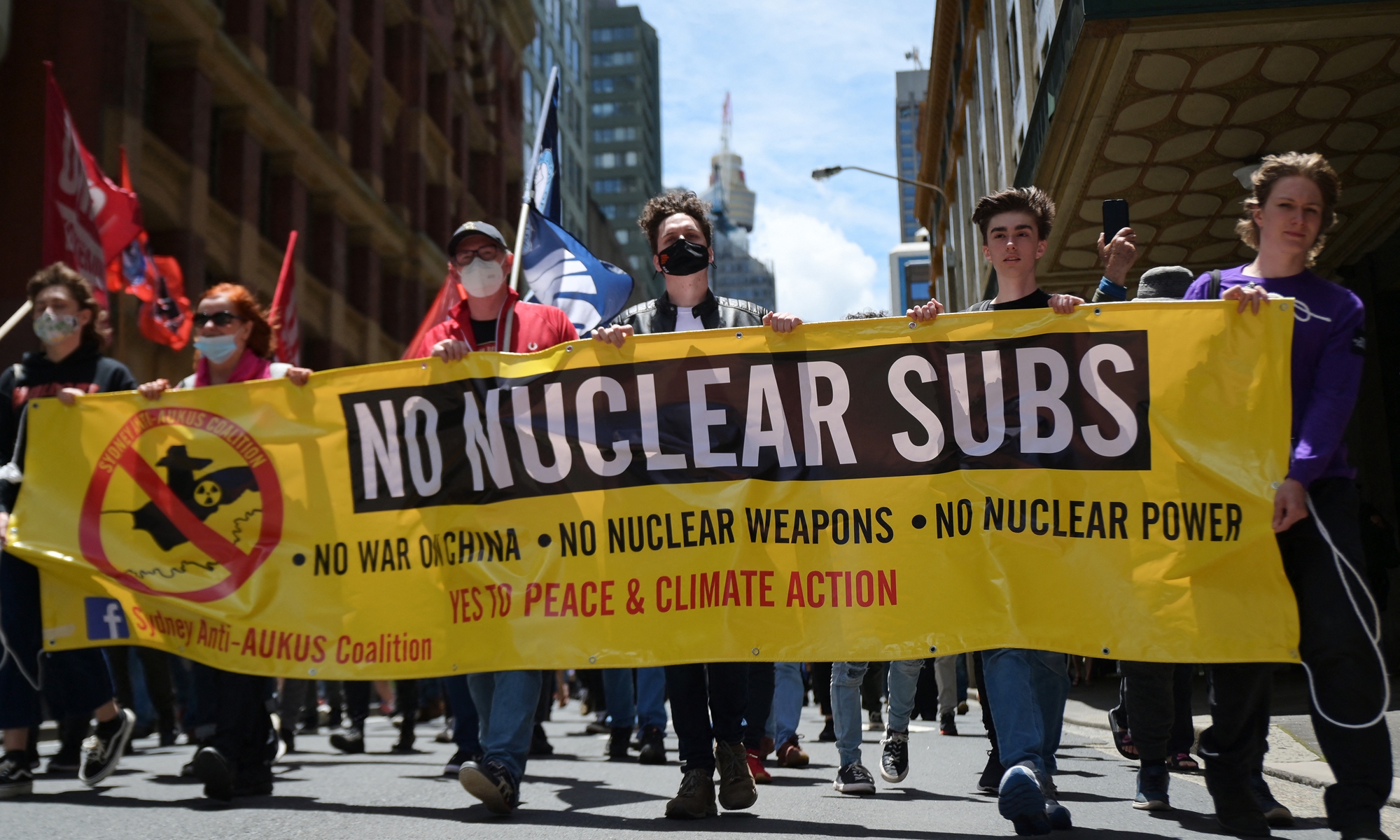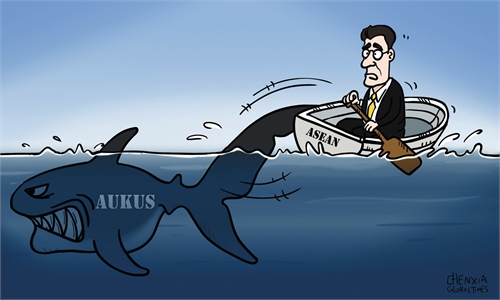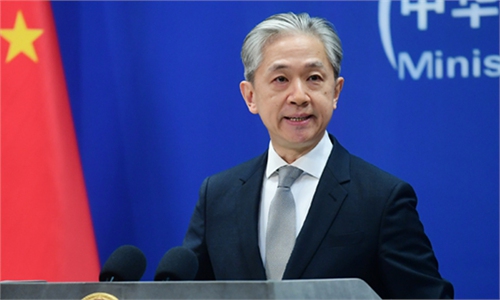
Members of the Sydney Anti-AUKUS Coalition (SAAC) participate in a protest in Sydney, Australia, on December 11, 2021 against the nuclear submarines deal among AUKUS members. Photo: AFP
The AUKUS nuclear submarine deal, which is rooted in "great power competition," poses a serious risk to regional and global security and the international non-proliferation regime, says a joint report by a Chinese and a Russian think tank at a seminar held in Vienna.
Analysts said on Thursday that the report will help the global community form a stronger international consensus, better maintain peace, ensure prosperity, and resist the scheme of the US-led bloc.
The report, titled "The AUKUS submarine deal: risks for the nuclear non-proliferation regime and global security", was jointly released by the China Arms Control and Disarmament Association and Russia's Center for Energy and Security Studies on Wednesday.
"The AUKUS strategic military cooperation is unprecedented and goes against the goals and spirit of the NPT (Treaty on the Non-Proliferation of Nuclear Weapons), and may inflict severe damage on the international non-proliferation regime and the NPT itself," says the report.
The AUKUS submarine cooperation "exploits an important lacuna of the non-proliferation regime and reduces political and moral barriers to nuclear proliferation," it adds. It also poses challenges to the safeguard system of the International Atomic Energy Agency (IAEA), according to the report.
"Possible attempts of behind-the-scenes discussions between the parties to AUKUS and the IAEA Secretariat can lead to the politicization of the Secretariat and erode overall trust in the IAEA," the report notes.
Under the trilateral AUKUS alliance, announced in September 2021, Australia can build nuclear-powered submarines with technology provided by the US and the UK. The AUKUS deal involves the transfer of up to four tons of weapons-grade highly enriched uranium from the US and UK, two nuclear-weapon states, to Australia, a non-nuclear-weapon state.
The AUKUS deal, "rooted in a US model of 'great power competition'," brings fresh uncertainties to regional and global security by stimulating some non-nuclear-weapon states' interest in nuclear weapon options and prompting an arms race and possibly a nuclear submarine arms race, says the report.
It says the IAEA member states and the IAEA Board of Governors should be involved in ensuring a reliable and effective arrangement for the AUKUS deal in favor of the NPT and non-proliferation regime.
It also calls on all countries to uphold the international non-proliferation regime, specifically to address the risks of the AUKUS deal through open and inclusive dialogue and cooperation.
Li Haidong, a professor at the China Foreign Affairs University, described AUKUS as "time bomb" and "cancer cell" to the Asia-Pacific and even the world security mechanism.
According to the expert, in the past, the world nuclear non-proliferation mechanism was characterized by cooperation and coordination among major countries, which prevented global nuclear proliferation from becoming rampant and going out of control. But currently, the US and UK are tearing up the international nuclear non-proliferation mechanism through AUKUS, which would lead to division.
The existence of AUKUS will bring the Asia-Pacific region and even the entire world into crisis: the conventional arms race will go out of control, as will the nuclear arms race, and the process of building a security framework would be extremely chaotic, Li told the Global Times.
The Asia-Pacific region has enjoyed prosperity and stability for almost 50 years. The key to peace and stability is for countries and regions to be able to form a close community of interests and values. However, the existence of AUKUS may undermine the Asia-Pacific region's cherished opportunity for peaceful development, analysts said.
The report could help peace-loving countries around the world form a stronger international consensus to resist the schemes of the US, UK and Australia, and to better maintain peace and ensure prosperity, Li said.
More than 80 delegates, including researchers from the two think tanks and diplomats, attended the seminar. It was held as a side event at the ongoing first meeting of the Preparatory Committee for the 2026 Review Conference of the Parties to NPT, according to the Xinhua News Agency.



